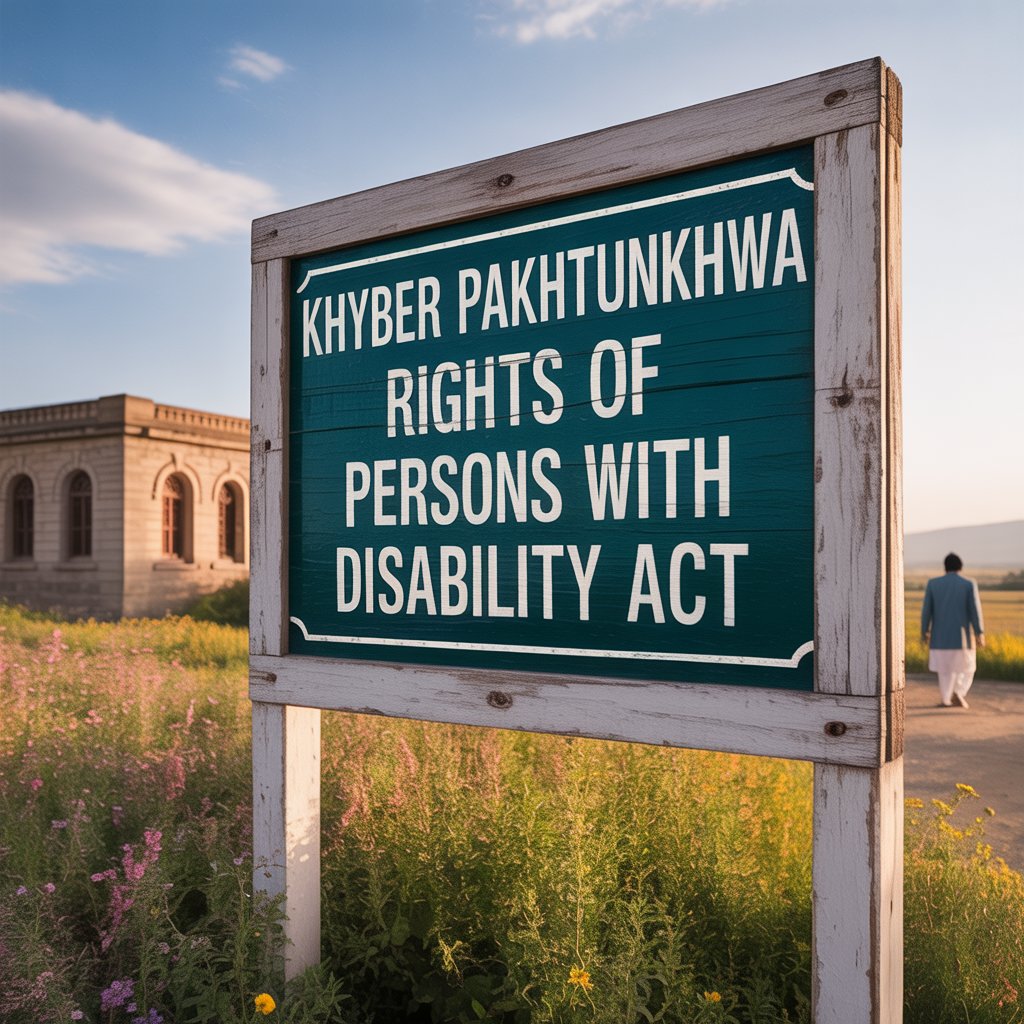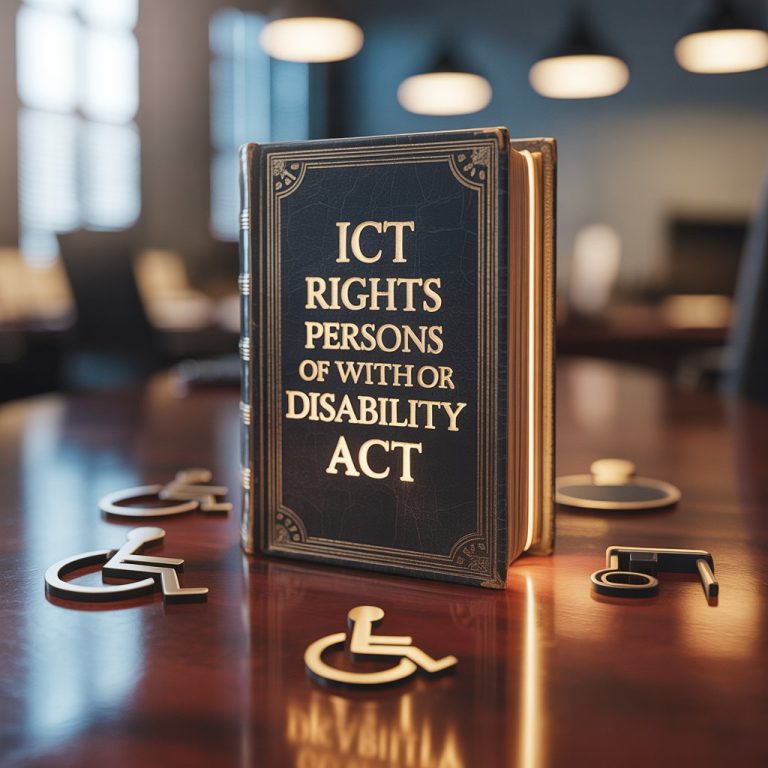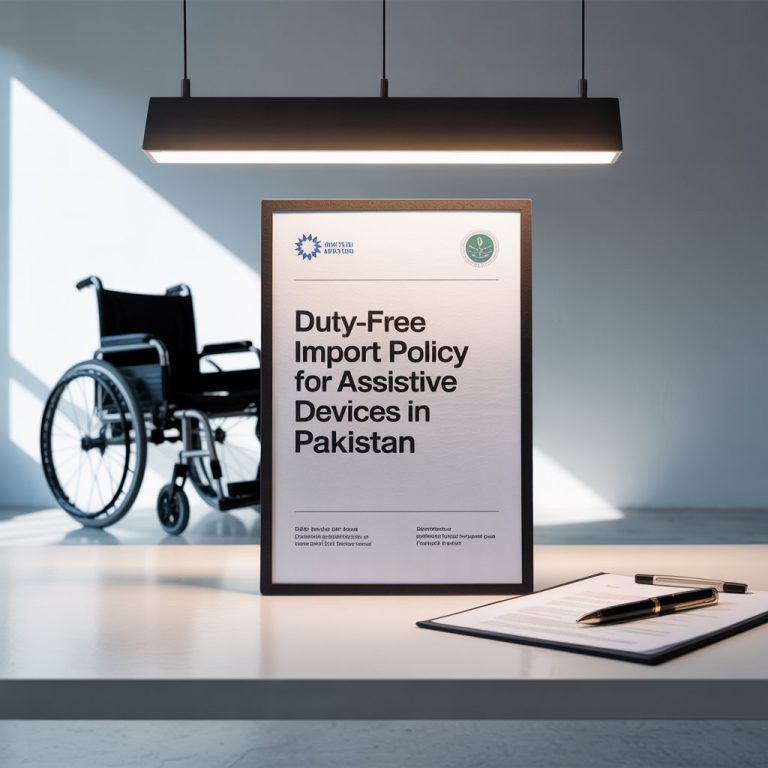Khyber Pakhtunkhwa Rights of Persons with Disability Act

The Khyber Pakhtunkhwa Rights of Persons with Disability Act is a groundbreaking piece of legislation aimed at uplifting the status and rights of persons with disabilities (PWDs) in the province. With its enactment, KP joins other provinces in Pakistan in aligning with the UN Convention on the Rights of Persons with Disabilities (UNCRPD), which the country ratified in 2011.
This Act serves as a legal shield and practical guide to foster accessibility, equality, and participation for PWDs in KP. From inclusive education to accessible public transport and legal protection from discrimination, the law offers a comprehensive rights-based framework to ensure no one is left behind.
Background: Why KP Needed a Disability Rights Law
For years, KP relied on outdated national ordinances like the Disabled Persons (Employment and Rehabilitation) Ordinance, 1981, which lacked enforceability and inclusivity. PWDs in KP faced:
- Poor access to schools and jobs
- Inaccessible public buildings
- Lack of legal redress against discrimination
- Minimal participation in decision-making
With the passage of the 18th Amendment and provincial autonomy, there was an urgent need to draft a provincial law focused on rights, dignity, and development of PWDs in KP.
Legislative Development and Public Involvement
The law was developed through:
- Consultations with Disabled Persons Organizations (DPOs)
- Collaboration with the Department of Social Welfare, Special Education and Women Empowerment (SEPWD)
- Review of international best practices
- Provincial Assembly debates leading to final approval
It stands today as a people-centered legislation, reflecting the needs and voices of the disability community in KP.
Coverage and Scope of the KP Disability Act
The Act applies to:
- All persons with physical, sensory, intellectual, or psychosocial disabilities
- All public and private institutions operating within Khyber Pakhtunkhwa
- All services, programs, and infrastructures under provincial jurisdiction
It ensures universal access to rights irrespective of age, gender, socioeconomic status, or location.
Core Principles and Vision of the KP Act
The Act draws its inspiration from the UNCRPD, and its principles include:
- Dignity and autonomy
- Equality and non-discrimination
- Full participation in society
- Accessibility and reasonable accommodation
- Empowerment through legal safeguards and education
Establishment of the KP Disability Rights Authority
The Act establishes the KP Disability Rights Authority, tasked with:
- Coordinating across departments to implement the law
- Monitoring and reporting on progress
- Handling public grievances
- Advising the government on disability-inclusive policies
This Authority ensures that the disability rights agenda is systematically executed and enforced.
Right to Inclusive Education
The KP Act guarantees:
- Inclusive education in mainstream schools
- No discrimination in admissions or assessments
- Provision of assistive devices, including braille, sign language, and audio aids
- Curriculum adaptation for children with intellectual disabilities
- Specialized training for teachers and administrators
Employment Opportunities and Quotas
Under the law:
- A 2% employment quota is mandated across public departments
- Workplaces must provide reasonable accommodation (e.g., flexible hours, accessible facilities)
- Vocational training and job placement centers will be expanded
- The private sector is encouraged through tax incentives for inclusive hiring
Healthcare Access and Assistive Services
The law ensures:
- Equal access to physical and mental healthcare
- Mobile health units in remote areas
- Free or subsidized assistive devices (e.g., wheelchairs, white canes, prosthetics)
- Inclusive reproductive and maternal health services for women with disabilities
Hospitals and clinics must have accessible infrastructure and trained staff.
Accessible Infrastructure and Transportation
To ensure mobility, the Act requires:
- All public buildings to be retrofitted with ramps, elevators, tactile signage
- New buildings to follow universal design standards
- Public transport (buses, terminals) to accommodate PWDs with priority seating, audio announcements, and ramps
- Urban planners to integrate inclusivity in city development
Legal Protection and Redressal Mechanism
Legal rights under the Act include:
- Protection from discrimination, abuse, or neglect
- Access to courts, police stations, and complaint forums
- Provision of legal aid and guardianship assistance
- Establishment of district grievance redress committees
Rights of Women and Girls with Disabilities in KP
Recognizing intersectional discrimination, the law provides:
- Gender-sensitive protections
- Access to violence prevention and response services
- Support for education, health, and reproductive rights
- Representation of women with disabilities in policy forums
Children’s Rights and Early Intervention
The law ensures:
- Early identification and intervention services
- Inclusive kindergartens and preschools
- Adaptive learning materials and IEP (Individual Education Plans)
- Parent support groups and counseling services
Emergency Planning and Disaster Response
The Act mandates that:
- Disaster Management Authorities integrate PWDs in planning
- Emergency alerts are issued in accessible formats
- Relief shelters must be wheelchair-accessible
- Rescue staff be trained to assist persons with varying impairments
Digital Inclusion and ICT Accessibility
Digital rights include:
- Accessible websites for all government departments
- Screen-reader compatible e-government platforms
- Accessible e-learning systems for students with disabilities
- Inclusive banking and mobile financial services
Disability Certification and Provincial Registry
KP will maintain a central disability registry, enabling:
- CNIC-linked access to services
- Priority inclusion in social protection programs
- Data-driven planning and service delivery
Registrations can be initiated via local SEPWD offices or online portals.
SEPWD and Inter-agency Coordination
The Department of Social Welfare, Special Education and Women Empowerment will:
- Lead inter-agency coordination
- Support capacity-building of local bodies
- Ensure effective monitoring and data collection
Public Awareness and Social Inclusion Campaigns
The Act emphasizes:
- Mass media campaigns to normalize inclusion
- Training of public servants in disability rights
- Inclusive representation in films, ads, and TV
- School curriculum updates to promote disability awareness
Budget Allocation and Resource Mobilization
Each department must:
- Allocate budgets for implementing inclusion mandates
- Report expenditures to the Disability Rights Authority
- Mobilize partnerships with donors and development agencies
Monitoring, Evaluation, and Reporting Framework
The KP Act provides for:
- Annual progress reports to the Provincial Assembly
- KPIs across sectors (education, employment, health)
- Third-party audits and public disclosure of implementation stats
Judiciary and Rights Enforcement
The judiciary plays a critical role in:
- Enforcing employment quota orders
- Protecting rights under anti-discrimination clauses
- Addressing denial of services or abuse through public interest litigation
Civil Society and DPO Engagement in KP
DPOs like Fata Disability Forum and Pakistan Association of the Deaf (KP Chapter) assist in:
- Policy monitoring
- Legal support and community outreach
- Identifying violations and informing SEPDA
Comparison with Punjab and Sindh Disability Acts
| Feature | KP Act | Punjab Act (Draft) | Sindh Act (2018) |
|---|---|---|---|
| Dedicated Authority | Yes | Yes (proposed) | Yes (SEPDA) |
| Employment Quota | 2% | 2%–3% | 5% |
| Gender Provisions | Yes | Yes | Yes |
| Complaint Mechanism | District-level | Provincial body | Grievance Committee |
| Digital Accessibility | Mentioned | Yes | Strongly emphasized |
KP’s law is progressive but requires better enforcement and resource planning to catch up with Sindh’s implementation edge.
Barriers to Implementation and Needed Reforms
Key obstacles include:
- Lack of trained accessibility auditors
- Inadequate funding at the district level
- Minimal enforcement of job quotas
- Resistance from non-inclusive public institutions
Alignment with SDGs and National Commitments
The Act aligns with:
- SDG 4: Inclusive education
- SDG 8: Decent work
- SDG 10: Reduced inequalities
- SDG 11: Sustainable, inclusive cities
It also advances Pakistan’s Vision 2025 goals.
Recommendations for Strengthening the KP Act
- Develop mobile-based reporting apps
- Train district officials in disability law compliance
- Introduce inclusive procurement standards
- Launch a provincial innovation challenge for assistive tech
- Strengthen monitoring indicators and stakeholder engagement
Success Stories and Community Impact
In Peshawar, Fatima, a young girl with a hearing impairment, enrolled in a mainstream school for the first time after the Act’s passage. Her parents received state-funded assistive devices, and she now thrives with the help of a trained sign-language interpreter—a direct impact of the law in action.
Conclusion: A Path to an Inclusive Khyber Pakhtunkhwa
The Khyber Pakhtunkhwa Rights of Persons with Disability Act marks a shift from passive welfare to active empowerment. It guarantees rights with enforceable provisions and mechanisms. However, true success depends on implementation, inclusion, and investment. Together—through policy, practice, and public participation—we can build a KP where every person, regardless of ability, is free to learn, earn, and live with dignity.
FAQs
Is the KP Disability Act currently in effect?
Yes, it has been passed and is being gradually implemented across departments.
How do persons with disabilities register for benefits?
Through the provincial disability registry linked to NADRA and local SEPWD offices.
What is the job quota for PWDs in KP?
A minimum of 2% in public-sector institutions.
Does the law apply to private companies?
Yes, private entities are encouraged to comply and are offered tax incentives.
Who handles complaints under the Act?
The KP Disability Rights Authority and District Grievance Committees.





